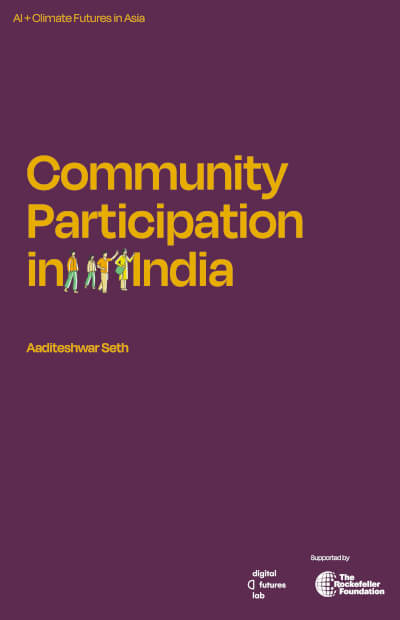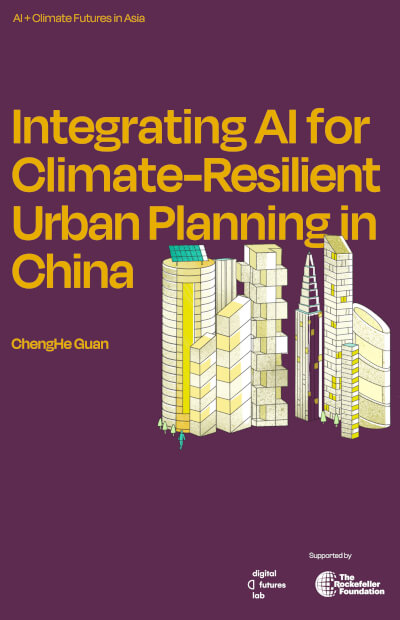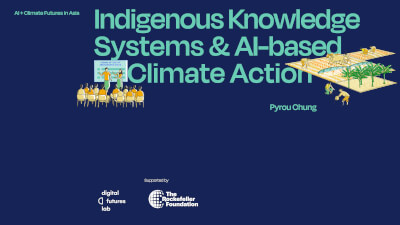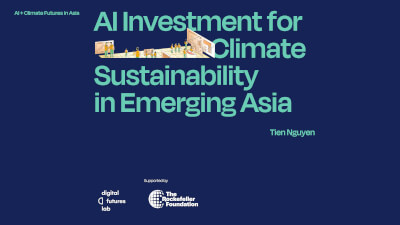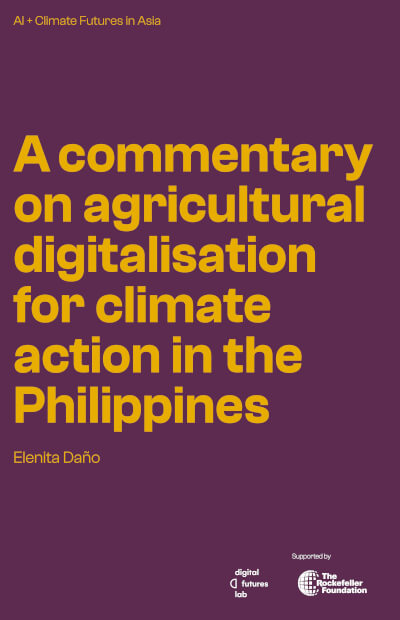Expert Briefs
The expert network produced a series of briefs that delve deeper into the opportunities and challenges in specific countries, as well as cross-cutting issues around data and financing.
AI for Climate Action: Community Participation in India Aaditeshwar Seth
In this brief, Aaditeshwar discusses AI-use cases grounded in community participation toward natural resource management in India—an approach that encourages wider community cooperation and builds cohesiveness to cope with any future crises. He advocates for stronger regulation of AI systems, an alert civil society and a participatory approach in designing technological tools, underlined by a commitment to equality and empowerment of the marginalised.
Integrating AI for Climate-Resilient Urban Planning in China ChengHe Guan
China faces significant challenges in addressing climate change while pursuing economic growth and development. If implemented effectively, AI-driven solutions in urban planning and green space development can help the nation meet its ambitious goals of peaking CO2 emissions by 2030 and achieving carbon neutrality by 2060. This brief argues that moving forward, China will need to foster enabling conditions, such as targeted financial support, public-private partnerships, data-sharing regulations, skilling programmes and public engagement for sustainable urban development driven by AI solutions.
Indigenous knowledge systems and AI-based climate action Pyrou Chung
Can traditional ecological knowledge and Indigenous data sovereignty contribute to AI-powered climate action while respecting Indigenous Peoples (IPs) rights? IPs have lived in partnership with their lands and territories from time immemorial. Through their languages and protocols, they “engage in dialogue with non-human kin, creating mutually intelligible discourses across differences in material, vibrancy, and genealogy.” In this brief, Pyrou explores the need to critically interrogate and engage with the invisibilisation of indigenous languages and their ways of knowing with discussions on AI for conservation and climate action.
AI Investment for Climate Sustainability in Emerging Asia Tien Nguyen
The application of AI to tech-business activities is fairly recent, and its scope, so far, has been limited. However, the emergence of generative AI highlights its growing significance as a mainstream technology in the 21st century. Drawing insights from Earth Venture Capital, a firm dedicated to climate tech investment, this study reviews recent AI advancements and their applications in various sectors including energy management, mobility, agricultural precision, and waste collection. It explores the challenges and limitations of AI adoption for climate sustainability in Asia, and argues that investing in AI holds promise for the region but requires proactive measures from policymakers and investors to—support AI research and development, foster stronger regional collaborations, and institute guard rails for sustainable environmental outcomes.
A commentary on agricultural digitalisation for climate action in the Philippines Elenita Daño
Digitalization is a key component of The Philippines' recent vision of “smart agriculture”, which involves the use of the internet of things (IoT), smart irrigation, and smart greenhouses. The brief identifies the key actors leading this agenda and analyses potential impacts of digitalization on farming communities. It advocates for policy, regulation and public participation in the evaluation of AI impact on food systems and the agricultural sector in the Philippines.
